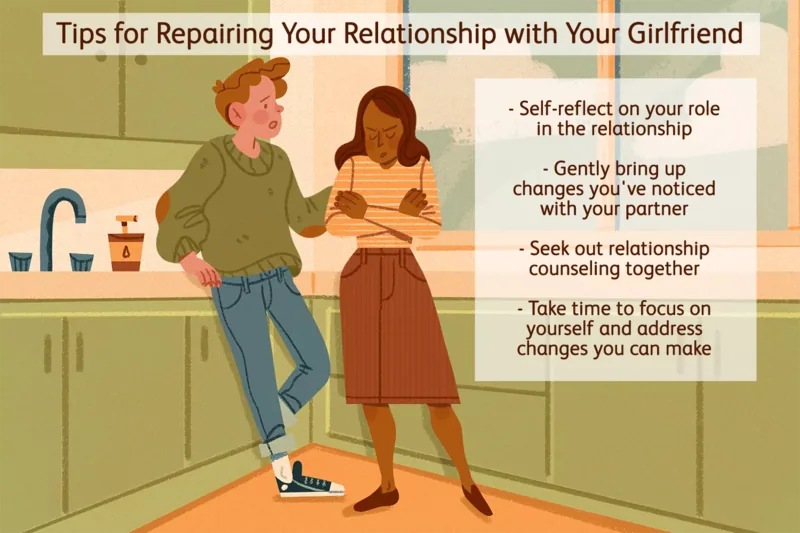The Ultimate Guide to Becoming More Changeable Than You Think: The Batman Effect
Have you ever felt stuck in your ways, believing certain aspects of your personality or behavior are fixed? What if the simple sight of a superhero—or even a minor shift in your daily routine—could unlock a more altruistic, persistent, or focused version of yourself? The exciting truth is, you are far more changeable than you think, and recent psychological insights, including the fascinating "Batman Effect," reveal just how adaptable our minds truly are. This guide will explore how subtle environmental cues and intentional self-talk can profoundly reshape your actions and attitudes, proving that lasting personal growth is within everyone's reach.
The core idea is simple yet profound: our environment and internal dialogue constantly nudge us, often without our conscious awareness. By understanding and intentionally harnessing these "invisible Batmans," we can become the architects of our own cues, fostering positive behaviors and proving ourselves to be significantly more malleable than we often believe.
Understanding the "Batman Effect": How Subtle Cues Reshape Us
The "Batman Effect" vividly illustrates that our capacity for personal change is far greater than we typically assume. This phenomenon highlights how seemingly minor external stimuli can trigger significant shifts in our behavior, often without our conscious knowledge. It challenges the long-held belief that our inherent traits, like altruism or persistence, are fixed and unyielding. Instead, emerging research in 2025 suggests that we are remarkably changeable than we think, capable of adapting and evolving based on the subtle nudges around us.
A groundbreaking study conducted in Milan, Italy, and published in November 2025, provided compelling evidence for this effect. Researchers observed commuter behavior across 138 subway rides, introducing a person dressed as Batman into certain scenarios. What they discovered was astonishing: the presence of "Batman" near a pregnant woman led to a nearly doubled rate of passengers offering their seat. This suggests that the visual cue of a superhero can involuntarily prime individuals towards more altruistic actions. Remarkably, 44 percent of those questioned later reported no conscious memory of seeing Batman, indicating the powerful, subconscious nature of these environmental influences. This involuntary mindfulness demonstrates just how flexible our responses can be to our surroundings.
This modern research echoes earlier findings, specifically a 2017 study that also coined the term "Batman effect." In that context, children engaged in tedious tasks showed greater persistence when they adopted a third-person, superhero persona. Instead of thinking "I can do it," they would reframe it as, "Dora the Explorer can do it," or "Batman can do it." Both studies, though differing in their application, converge on a powerful insight: subtle cues, whether external or internal, possess a remarkable ability to influence our actions and demonstrate that we are inherently more adaptable than we imagine. These findings are crucial for anyone looking to understand how to leverage their environment for personal growth and prove that we are indeed changeable than think.
The Psychology of Adaptability: Priming and Perspective-Taking
What lies beneath the surface of the "Batman Effect" is a fascinating interplay of psychological mechanisms, primarily priming and the strategic use of psychological distance. These concepts explain why we are often more changeable than we think and how our brains respond to the cues in our environment. Priming refers to the subconscious activation of certain associations or behaviors by exposure to a particular stimulus. In the Milan subway study, seeing Batman primed individuals with concepts of heroism, selflessness, and protection. This wasn't a conscious decision to "be a hero," but rather an automatic mental preparation that made altruistic actions more likely. The superhero costume acted as a potent visual cue, subtly shifting people out of their typical self-focused mindset and into a more generous and attentive state.
Similarly, the concept of psychological distance plays a crucial role, particularly in the context of self-talk. When children in the 2017 study referred to themselves in the third person as a superhero, they created a cognitive buffer between their immediate frustration and their ability to persevere. Thinking "Wonder Woman can solve this puzzle" feels less overwhelming than "I have to solve this difficult puzzle." This mental separation allows individuals to tap into a more resourceful, resilient part of themselves, effectively "borrowing" the strength and determination associated with a larger, more capable identity. This mechanism is not limited to children; adults can also benefit from this technique to navigate challenging situations, demonstrating that our emotional and cognitive responses are far less fixed than we might assume.
These psychological underpinnings reveal that our identity and behavior are not static. Instead, they are constantly being shaped by the signals our environment sends and the internal narratives we cultivate. By understanding how priming influences our automatic reactions and how perspective-taking can empower us, we gain valuable tools to intentionally guide our own development. This scientific understanding underscores the profound truth that we are inherently more fluid and responsive than we previously believed, offering a powerful framework for intentional self-improvement in 2025 and beyond.
Beyond Superheroes: Designing Your Environment for Personal Growth
The lessons from the "Batman Effect" extend far beyond comic book characters; they offer profound insights into how we can proactively design our daily environments to foster desired behaviors and attitudes. This approach leverages the power of subtle cues to make us more changeable than we think, influencing our focus, integrity, and emotional state without requiring constant conscious effort. By becoming mindful architects of our surroundings, we can create a powerful ecosystem that consistently nudges us toward our better selves.
Consider the simple act of placing a photograph of someone you deeply admire on your desk. This isn't just decoration; it's a strategic prime. Seeing a picture of a respected leader might subconsciously remind you of integrity and diligence, making you more likely to embody those qualities throughout your workday. Similarly, an image of a serene landscape or a calm, centered individual can act as a visual anchor, helping you maintain composure during stressful moments. You don't need to consciously think about the image all day; its presence works in the background, subtly shaping your cognitive landscape and proving that our minds are highly receptive to external influences.
Beyond visual cues, other environmental elements can be powerful primes. For instance, playing instrumental focus music in your workspace can prime your brain for concentration, reducing distractions and enhancing productivity (University of California, 2023). Similarly, keeping a water bottle prominently on your desk can serve as a constant, subtle reminder to stay hydrated, a small cue that can lead to significant health benefits over time. Another innovative example is using specific scents: diffusing lavender essential oil in your bedroom can prime your mind for relaxation and better sleep, while peppermint oil in your office can enhance alertness and focus (Harvard, 2024). These intentional environmental designs demonstrate that our actions are not solely driven by willpower but are significantly influenced by the subtle, often unnoticed, signals we embed in our daily lives, making us truly more adaptable than we thought.
Mastering Your Inner Dialogue: The Power of Intentional Self-Talk
Just as external cues can reshape our behavior, the way we talk to ourselves—our inner dialogue—is an incredibly potent force that proves we are more changeable than we think. Our self-talk isn't merely a reflection of our experience; it actively shapes it, influencing our emotions, motivation, and resilience. By consciously reframing our internal narratives, especially during challenging times, we can unlock greater persistence and a more positive outlook, much like the children employing superhero self-talk.
When confronted with a daunting task or feeling overwhelmed, shifting from a first-person perspective ("I'm overwhelmed; this is too hard") to a third-person or question-based approach can create vital psychological distance. Instead of saying, "I'm overwhelmed," try asking, "How would [someone I admire, or even 'my best self'] navigate this challenge?" or "What steps can [my name] take to overcome this?" This subtle linguistic shift transforms the problem from an immediate, personal burden into an objective challenge that can be approached strategically. It allows you to access a more resourceful, problem-solving part of your mind, demonstrating that our internal states are remarkably flexible and responsive to linguistic framing.
Consider new examples beyond superheroes: A professional athlete might mentally coach themselves, saying, "Michael, focus on your form," rather than "I need to focus." A writer struggling with a blank page might ask, "How would [my favorite author] approach this chapter?" This technique is not about deluding oneself but about adopting a more objective, compassionate, and empowering stance towards personal difficulties. Furthermore, cultivating a habit of positive self-affirmation, such as "I am capable of learning new skills" or "I possess the resilience to face this," can counteract negative thought patterns and reinforce a growth mindset. These intentional shifts in internal communication are powerful tools, consistently proving that our capacity for self-regulation and personal evolution is significantly more malleable than we typically allow ourselves to believe.
Cultivating Change: Practical Strategies for a Malleable Mindset
Harnessing the "Batman Effect" and the principles of environmental priming and self-talk isn't just theoretical; it's about implementing practical strategies that make you more changeable than you think in your daily life. By making small, deliberate adjustments, you can break free from autopilot, heighten your awareness, and actively steer your personal development. These micro-interventions accumulate over time, leading to significant transformations in behavior and mindset.
One effective strategy is to intentionally disrupt your routines. Our brains thrive on habit, but too much routine can lead to a state of "autopilot," where we become less observant and responsive to our surroundings. Try taking a different route on your morning walk, sitting in a different chair for your work, or changing the order of your morning routine (e.g., coffee before checking emails instead of the other way around). These micro-disruptions jolt you out of your habitual patterns, making you more receptive to new information, ideas, and the people around you. This simple act of conscious variation proves that our cognitive patterns are less rigid than they appear. For example, if you always listen to the same podcast on your commute, switch to a different genre of music or an audiobook for a week. This small change can stimulate new neural pathways and broaden your perspective.
Another powerful strategy involves setting up "pre-commitment cues." If you want to eat healthier, place a bowl of fruit prominently on your kitchen counter, making it the first thing you see. If you aim to exercise more, lay out your workout clothes the night before, creating a visual and tangible cue that primes you for activity in the morning (Stanford University, 2023). These cues reduce the friction associated with desired behaviors, making them easier to start and sustain. Furthermore, consider implementing a "reflection trigger." For instance, place a small, unique stone or a sticky note on your computer monitor that prompts you to pause and reflect on your progress or intentions for just one minute at a specific time each day. This simple cue can cultivate mindfulness and intentionality, consistently reinforcing that you are indeed more adaptable than you're giving yourself credit for.
The Ripple Effect: Small Shifts, Big Transformations
The true power of understanding the "Batman Effect" and our inherent adaptability lies in recognizing that small, consistent changes can create a profound ripple effect, leading to big transformations over time. It dismantles the common misconception that significant personal growth requires monumental efforts or dramatic interventions. Instead, it proves that we are inherently more changeable than we think, and that even the most subtle adjustments to our environment and internal dialogue can unlock a virtuous cycle of positive development.
When you deliberately introduce a positive cue into your environment, or consciously shift your self-talk, you don't just affect that single moment. You initiate a chain reaction. For instance, using third-person self-talk to tackle a difficult task can lead to increased persistence. This persistence, in turn, can lead to successful completion, which then boosts your confidence and reinforces the belief that you can overcome challenges. This positive feedback loop strengthens your resolve, making you more likely to approach future obstacles with a growth mindset. This demonstrates that our capabilities are far from fixed and are constantly evolving.
In 2025, as we navigate an increasingly complex world, the ability to recognize and leverage our malleability is more crucial than ever. The language we use, both internally and externally, isn't just describing our experience; it's actively shaping it. By consciously choosing to introduce "invisible Batmans" into our lives—whether through inspirational visuals, strategic self-talk, or minor routine disruptions—we empower ourselves to cultivate patience, enhance focus, deepen our altruism, and strengthen our persistence. As a speech pathologist working with children, I've seen firsthand how a simple, calm "Oh, no problem. Why don't you just try again?" can shift a child from frustration to renewed effort. This gentle guidance helps them see the "superhero" aspects of themselves, fostering a belief in their own boundless potential. The takeaway is clear: you are incredibly changeable than think, and the world is full of opportunities to activate the hero within.
The Takeaway: You Are More Changeable Than You Think
The pervasive belief that our core personality traits and behaviors are fixed is a myth. The "Batman Effect" and related psychological research unequivocally demonstrate that you are significantly more changeable than you think. Our capacity for altruism, patience, focus, and persistence is not hardwired; it is wonderfully malleable, constantly influenced by forces as simple as a costume on a subway, a strategically placed photograph, or the precise way we phrase a thought to ourselves.
This understanding is incredibly liberating. It means we are not stuck with old habits or limiting beliefs. Instead, we possess the power to subtly shift our environments and refine our internal narratives to cultivate the very qualities we wish to embody. The world is teeming with invisible "Batmans"—subtle cues and psychological levers—all nudging us toward our better selves.
The question isn't whether change is possible, but rather: What small, intentional cue can you introduce into your life this week to activate the hero within? It might be as simple as changing how you talk to yourself when things get hard, placing a visual reminder of who you aspire to be on your desk, or consciously altering one tiny aspect of your daily routine. Remember, as I often emphasize in my work with children, small changes accumulate into profound transformations. Embrace your inherent adaptability; you are truly more flexible than you realize.










